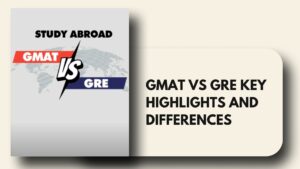- QS Rankings 2026 places the University of Auckland at 65, making it New Zealand’s highest-ranked university in your list.
- Master’s graduates (Level 9) in New Zealand are eligible for a 3-year open post-study work visa, giving them full employment flexibility.
- Top sectors like IT, Healthcare, and Finance offer average annual salaries of ₹35–66 lakh, making the ROI on education highly favourable.
- Why Study in New Zealand?
- Top Universities & Cost of Master's degree in New Zealand
- Scholarships Offered By Universities in New Zealand
- Eligibility for a Master’s Degree in New Zealand
- Document Checklist for MS in New Zealand
- Jobs and Salaries in New Zealand
- Cost of Living in New Zealand
- Post-Study Work Visa in New Zealand
- Essential Visa Document Checklist for Accredited Employer Work Visa
- Key Takeaways from AdmitX
- FAQs

Why Study in New Zealand?
Studying master’s in New Zealand provides international students opportunities and experiences, as the local community culture helps them navigate their academic journey.
- New Zealand is emerging as a leading centre for scientific advancements due to its thriving research and development sector, which promotes state-of-the-art technology development.
- Master’s students in New Zealand may receive a post-graduate work permit (PGWP) for either one, two, or three years, depending on their program. As the programs concentrate on business studies, job opportunities after graduation are promising.
- When it comes to top study-abroad destinations, Indian students may find pursuing an MS in New Zealand to be more cost-effective. The yearly expenditure is estimated to be between INR 15 and 35 lakh.
Top Universities & Cost of Master's degree in New Zealand
New Zealand hosts world-ranked universities with transparent fee structures. Here is a breakdown of leading options.
The table below shares QS 2026 rankings and typical tuition costs for international master’s students. The INR values use ₹55 per NZD as a reference conversion.
| University | QS Rank 2026 | Master’s Tuition per year (NZD) | Approx. in INR (~₹55/NZD) |
|---|---|---|---|
| University of Auckland | 65 | $27,142 – 35,496 | ₹14.93 – 19.52 Lakh |
| Massey University | 230 | $56,220 – 70,120 | ₹20.15 – 24.17 Lakh |
| University of Canterbury | 261 | $45,000 – 97,000 | ₹22.27 – 23.65 Lakh |
| Victoria University Wellington | 240 | $35,500 – 41,953 | ₹19.52 – 23.07 Lakh |
| AUT (Auckland University of Tech) | 407 | $41,900 – 49,892 | ₹20.24 – 27.44 Lakh |
Scholarships Offered By Universities in New Zealand
New Zealand offers many scholarship opportunities for international students, catering to various academic goals and financial needs. There are two types of scholarships available i.e. government-funded and university-specific scholarships.
Below is the list of top scholarships offered by universities & government in New Zealand:
| Scholarship | Award/Benefit | Verified Notes |
|---|---|---|
| New Zealand Commonwealth Scholarships | Weekly NZD 491 living allowance | Covers living plus usually tuition and more |
| NZ International Doctoral Research Scholarships (NZIDRS) | Full tuition + NZD 25,000/year stipend | Stipend annual, not total |
| NZ-GRADS Doctoral Scholarship | Up to NZD 10,000 tuition per year | Partial tuition scholarship |
| Victoria Master’s Scholarship | 30% tuition waiver | Partial tuition fee waiver |
| Eamon Molloy Memorial Scholarship | Up to NZD 15,000 | University-specific award |
| Bayer Boost Environmental Scholarship | Up to NZD 6,000 | Financial support for environmental research |
Eligibility for a Master’s Degree in New Zealand
Every university has its own set of eligibility criteria but here is the basic eligibility requirement of universities for masters in New Zealand:
- Academic Performance: Minimum GPA of 6.5–7.5/10 (B/B+ grade) in a relevant Bachelor’s degree at NZQF Level 7/8.
- Relevant Background: Bachelor’s degree must match the Master’s specialization (Finance, Business, IT, etc.).
- English Proficiency:
- IELTS Academic: 6.5 overall, no band below 6.0
- TOEFL iBT: 90–100
- PTE Academic: 58–64 (course-specific)
- Duolingo English Test (DET): 120–130 (accepted by multiple NZ universities including Massey & AUT for Masters)*
- IELTS Academic: 6.5 overall, no band below 6.0
- Portfolio: Only for design or creative programs.
Document Checklist for MS in New Zealand
Following is the document checklist for getting admission to the best universities in New Zealand. Make sure your documentation is well-organised and meets university and immigration criteria.
- Official academic transcripts and degree certificates (with GPA scale)
- English language proficiency test report (IELTS/TOEFL/PTE/Duolingo)
- GRE/GMAT scores (if applicable)
- Statement of Purpose (SOP)
- 2–3 Letters of Recommendation (LORs)
- Updated CV/Resume
- Portfolio (for creative/design courses)
- Valid passport and 2 recent passport-sized photographs
- Completed university application form
- Proof of funds for tuition + living expenses (for visa)
- Health and police certificates (if applicable for visa).
Jobs and Salaries in New Zealand
Various industries within the New Zealand economy offer a variety of employment opportunities to Indians, making a substantial contribution to the job market in New Zealand. Specific sectors are recognized for providing lucrative salaries and many job openings.
Below, we present an overview of the top five industries in addition to the average wage in New Zealand:
| Industry | Salary Range (per annum) |
|---|---|
| Construction | NZ$50,000 – 90,000 (₹27.5 L – ₹49.5 L) |
| Financial Services | NZ$60,000 – 120,000 (₹33 L – ₹66 L) |
| Manufacturing | NZ$50,000 – 95,000 (₹27.5 L – ₹52.25 L) |
| IT | NZ$65,000 – 120,000 (₹35.75 L – ₹66 L) |
| Healthcare | NZ$50,000 – 90,000 (₹27.5 L – ₹49.5 L) |
These sectors present substantial chances for a satisfying job with an average New Zealand pay rate. You can evaluate your abilities, passions, and aspirations and seek job positions within these leading industries to accelerate your growth.
Cost of Living in New Zealand
Indian students may discover that the cost of living in New Zealand fluctuates based on their region, lifestyle, and the type of school they attend. Students are recommended to allocate funds for accommodations, food shopping, transportation, and leisure activities.
To make smarter financial decisions, you can use our Cost of Living Calculator to estimate your monthly and yearly budget based on your target city and lifestyle preferences.
Here is a list of expenses that a student might incur while studying master’s in New Zealand:
| Expense Type | Estimated Cost |
|---|---|
| Accommodation | NZ$200–350/week (₹10,400–18,200/week) |
| Food | NZ$100–150/week (₹5,200–7,800/week) |
| Insurance | NZ$600–1,000/year (₹31,200–52,000/year) |
| Other expenses | NZ$50–100/week (₹2,600–5,200/week) |
| Total | NZ$1,500/month minimum (₹78,000/month) |
Post-Study Work Visa in New Zealand
International students graduating in New Zealand can leverage the Post-Study Work Visa to extend their stay and gain valuable work experience there. This visa allows graduates to live and work in New Zealand for up to three years after completing their studies. Here is the eligibility criteria for it:
- Master’s degree graduates (Level 9, typically 1–2 years): Eligible for up to 3-year open post-study work visa, can work for any employer in NZ.
- Requirements: Qualification must be Level 7+ on the NZQF; must have studied in NZ for at least 30 weeks for a master’s degree.
Essential Visa Document Checklist for Accredited Employer Work Visa
This visa lets you work in New Zealand for an accredited employer who has offered you at least 30 hours work a week. Here’s a list of essential documents you’ll need to pick for your New Zealand work visa application:
To apply you must:
- have a job offer of full-time work from an accredited employer
- meet work experience and/or qualification requirements depending on your job
- meet other requirements depending on the skill level required for your job
- have spent the required time outside New Zealand, after staying for the maximum time allowed, if applying for another Accredited Employer Work Visa (AEWV)
- show you can speak and understand English, if your job is on the ANZSCO skill level 4 or 5 list and not exempt
- Medical certificates as required
Key Takeaways from AdmitX
If you are choosing New Zealand for your master’s, you should focus on maximizing your return on investment, building global skills, and opening doors to post-study work and permanent residency.
Here’s what Indian students should keep in mind:
- 1–2 Year Master’s Degrees Can Lead to 3-Year Work Visas
With smart course selection and eligibility planning (e.g., Level 9+ degrees), you can secure up to 3 years of open work rights in New Zealand post-graduation. - Scholarships Are Accessible, but Timing Matters
Government and university scholarships can cover up to 100% of your tuition or living expenses. Many are awarded before or during admission, so applying early is critical. - Indian Qualifications Now Enjoy Easier Visa Recognition
From June 23, 2025, degrees from Indian universities on the LQEA list will no longer need IQA assessment. This makes your visa process faster and cheaper.
Need help with university selection, documentations, or applying for NZ student visas?
Connect with AdmitX for expert, one‑on‑one guidance and resources for your study abroad journey. Let’s make your smooth transition to NZ a reality!
FAQs
What is the cost of a student visa in New Zealand?
The cost of a student visa in New Zealand is NZ$ 850 (₹44,140).
Is there a one-year master's program in New Zealand?
Yes, you can complete a Master’s degree in 12, 18, or 24 months, depending on course structure.
Does New Zealand offer quality master’s degrees?
Absolutely, New Zealand provides globally respected education at relatively lower cost than many Western countries.
How long is a Post‑Study Work Visa (PSWV)?
Eligible graduates (Level 9, full‑time study for ≥30 weeks) can get a 3‑year work visa. Shorter qualifications receive a visa matching study duration.
Health insurance cost for international students?
It generally ranges from NZD 600 to 1,000/year, and must be arranged before applying for a visa.
What is the living weekly allowance under the Commonwealth Scholarship?
The Commonwealth Scholarship offers NZD 491/week plus tuition and other benefits.
Is public transport expensive for students in NZ?
Tertiary discounts are available in many cities like Auckland and weekly passes cost around NZD 50–60.
Can students work while studying?
Yes, internationally students can work up to 20 hours/week during terms and full-time during holidays.
How to track living costs effectively?
Use tools like budget planners, join discount programs, and estimate your lifestyle expenses accurately with our cost‑of‑living calculator.
Where can I check official visa updates for India?
Refer to Immigration New Zealand’s official website, especially for updates on Indian qualifications being exempt from IQA after 23 June 2025
If you are an aspirant looking to study at your dream university, book an appointment with AdmitX today and start your applications early to avail yourself of all the benefits.














